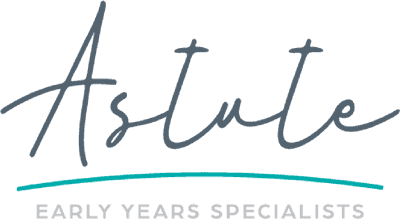Facts
Access to high-quality early learning sets
children up for success at school and life.
Studies have found that children who participate in quality early years education are more likely to go on to do better at school, and are better at self-regulation and social behaviours (source: Effective Pre-School, Primary and Secondary education project).
More than 80% of a child’s brain development occurs by the time they turn five, and the quality of their early learning during this crucial stage of development has life-long impacts (source: Centre on the Developing Child 2009).
But, when compared with the Queensland and Australian averages, children in the Mackay district (which includes the communities of Moranbah and Dysart) are more likely to be considered ‘vulnerable’ across five developmental domains – physical, social, emotional, language, and communication (source: Australian Early Development Census 2021). For example, 8.4 per cent of all Queensland children are considered vulnerable in terms of language development, compared with 10.7 per cent of children in the Mackay area.
Children in country Queensland need equitable access to high-quality early learning to give them the best possible start in life.
Country communities are the
backbone of Queensland.
According to the 2021 census, more than half of our 5.2 million Queenslanders live outside the Greater Brisbane area. Queensland is one of only two states in Australia (the other being Tasmania), where more people live outside of a capital city area than in it. Our unique, decentralised population presents means we are reliant on country Queensland communities for a strong and competitive economy. But these communities face unique challenges – such as access to allied health services, education, employment, and business opportunities; along with supply chain issues, digital connectivity, and even housing.
Mining makes up almost 12% of Queensland’s economy (source: Queensland Treasury 2020), so communities like those in the Isaac region are critical to the economic wellbeing of our state. Yet these communities are struggling to support business productivity and workforce participation because of the lack of early childhood educators and teachers. Without these vital resources, childcare centres cannot operate at capacity and parents are forced to spend less time working and more time caring for young children.
Country communities are struggling to
meet the childcare need.
A study commissioned by BHP in 2022 found that not only is there a potential shortfall of places in early learning services to meet the needs of families in Moranbah and Dysart, but of the places that do exist, not all are being used due to staff shortages. Childcare services are struggling to attract and retain early childhood education and care professionals to the Isaac region due to low remuneration, housing affordability, the costs associated with living in remote communities, and access to professional learning and career advancement opportunities.
Additionally, according to 2021 Census data, more residents in Moranbah are providing unpaid care for children compared with the Queensland average (32.1% of residents versus 26.5% of all Queenslanders). Further, 4.8% of the population were recorded as attending preschool, below the Queensland average of 5.4%, and the Australian average of 6.3%, despite having a higher proportion of children aged 0-4 in the community compared with the Queensland average.
Country Queensland children are missing out on critical access to quality early learning. We know early childhood experiences and quality early learning directly contribute to a child’s developmental and life-long educational outcomes. All of Queensland’s children deserve the opportunity to have the best start in life.




